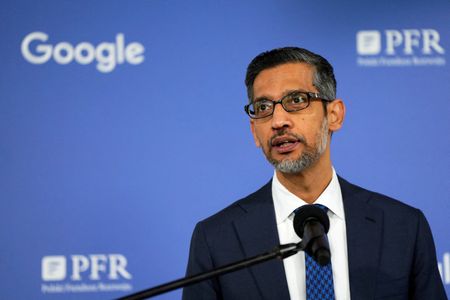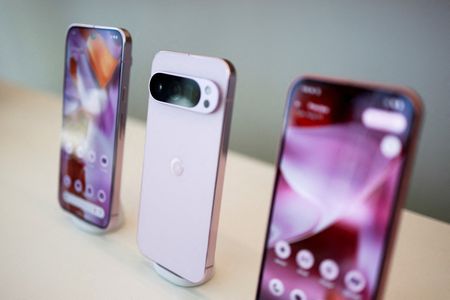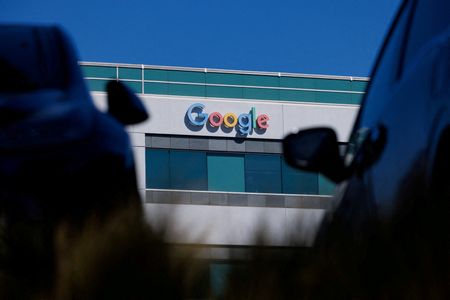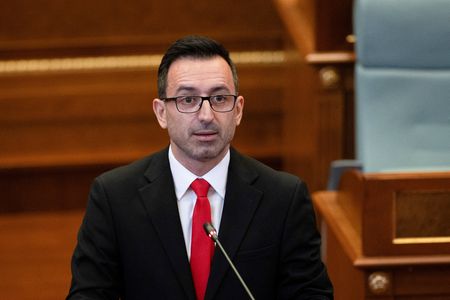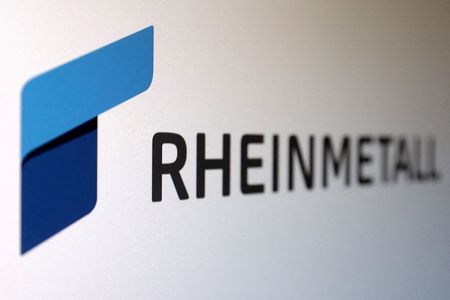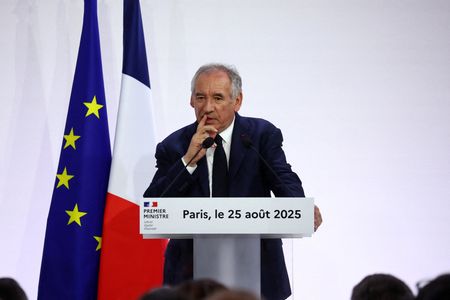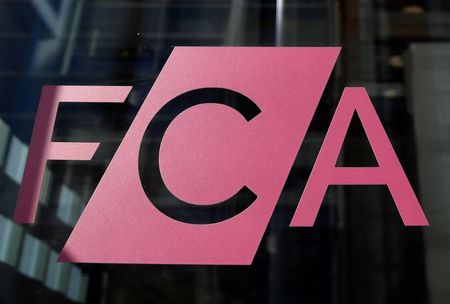By Jody Godoy
(Reuters) -Google hopes to enter an agreement with Apple by the middle of this year to include its Gemini AI technology on new phones, CEO Sundar Pichai said in testimony at an antitrust trial in Washington on Wednesday.
Pichai testified in the Alphabet unit’s defense against proposals by the U.S. Department of Justice which include ending lucrative deals with Apple, Samsung, AT&T and Verizon to be the default search engine on new mobile devices.
During questioning by DOJ attorney Veronica Onyema, Pichai said that while Google does not yet have an agreement with Apple to include its Gemini AI on iPhones, Pichai spoke with Apple CEO Tim Cook about the possibility last year.
A potential deal this year would see Google’s Gemini AI included within Apple Intelligence, Apple’s own set of AI features, Pichai said.
Google also plans to experiment with including ads in its Gemini app, Pichai said.
Prosecutors have sought to illustrate how Google could extend its dominance in online search to AI. Google maintained its monopoly in part by paying billions of dollars to wireless carriers and smartphone manufacturers, U.S. District Judge Amit Mehta ruled last year.
The judge is now weighing what actions Google should take to restore competition. The outcome of the case could fundamentally reshape the internet by potentially unseating Google as the go-to portal for information online.
The DOJ and a broad coalition of state attorneys general are pressing for remedies including requiring Google to sell off its Chrome web browser, banning it from paying to be the default search engine and requiring it to share search data with competitors.
The data-sharing provisions would discourage Google from investing in research and development, Pichai testified on Wednesday.
Provisions that would require the company to share its search index and search query data are “extraordinary,” and amount to a “defacto divestiture of our IP related to search,” Pichai said.
“It would be trivial to reverse engineer and effectively build Google search from the outside,” he said.
That would make it “unviable to invest in R&D the way we have for the past two decades,” Pichai added.
Google has said it plans to appeal once the judge makes a final ruling.
(Reporting by Jody Godoy in New York; Editing by Leslie Adler and Nick Zieminski)

